Individual Projects
Audrey Boochever, Education, PhD Candidate
Navigating Chronic Health Challenges & Autoimmune and Mysterious Illnesses while In Graduate School: A Resource Guide
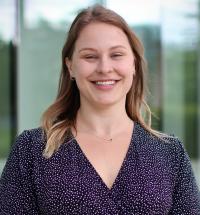
Project Summary:
During year 2 of my PhD, I had to go to the ER eight times in one month for a wide array of acute symptoms. I felt frustrated that I had to navigate so many healthcare AND university systems with no centralized source to get information. I am not alone. Over 20% of PhD students have chronic health issues and students with chronic health issues are half as likely to graduate. This motivated me to create this project – a resource guide for students also tackling chronic health issues, autoimmune issues, or undiagnosed illnesses to provide a centralized source of information. For this project, I interviewed a dozen other students and student health center employees to create the resource guide I wish I had, with the plan to disseminate and that It can be built upon in the future. Topics include health insurance claims and appeals, taking time off, academic accommodations, HR accommodations, and Student Health and Counseling Services. The guide can be found at http://tinyurl.com/pftfresourceguide
Catelyn Bridges, Horticulture and Agronomy, PhD Candidate
Academia in Living Color – A Podcast to support retention of people of color in the academy
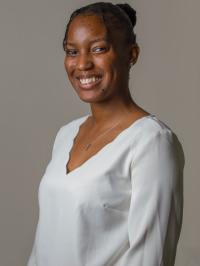
Faculty Mentor: José Juan Pérez Meléndez
Project Summary:
Higher education institutions play a pivotal role in shaping the future of our society. As centers of knowledge, research, and learning, they rely on a diverse faculty to foster innovation, critical thinking, and inclusive pedagogy. However, the representation of people of color within faculty ranks remains disproportionately low. Addressing this disparity is not only a matter of equity but also essential for the overall success and impact of higher education.
Join host Catelyn Bridges, a PhD candidate in Horticulture and Agronomy as she explores the vibrant narratives of Black individuals in higher education. “Academia in Living Color” is a podcast series that sheds light on the struggles and triumphs of Black scholars from a first-generation student to a soon-to-be professor. In collaboration with Dr. Tammy McCoy, a mentor who has been instrumental in Catelyn’s journey, this series delves into the experiences of current faculty and administration, uncovering the paths they’ve taken to their roles in academia. Dr. McCoy, with her extensive background in materials science and engineering and her role in faculty development at Georgia Tech, brings a wealth of knowledge to the podcast. This short series podcast, 6 episodes, can be found on Spotify.
Alice Dien, Biological Systems Engineering, PhD Candidate
Write Together, Thrive Together: Peer-Support Writing in Graduate School
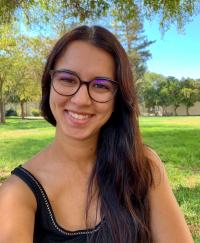
Faculty Mentors: Marit MacArthur, Clark Fitzgerald, José Juan Pérez Meléndez
Project Summary:
More than 50% of PhD students in US institutions do not complete their degrees, with the majority dropping out at the ABD (All-But-Dissertation) stage1,2. Dissertation writing is often a daunting and isolating experience, particularly when students lack adequate support and mentorship. Previous research indicates that writing support groups can significantly enhance student well-being and success in completing their degrees by providing long-term extensive peer support that other initiatives, such as tutoring, cannot offer3.
To address this issue, we launched two initiatives, the Writing Partner Program (WPP) and the Writing Support Groups (WSG), to provide graduate students with a peer-support system aimed at promoting inclusion and belonging and a structured support system to enhance productivity, organization, and confidence in writing. Both programs were developed and managed through the Graduate Writing Across the Curriculum (GWAC) Graduate Writing Fellows Program.
The WPP pairs graduate students with a dedicated partner with whom they can meet regularly, providing an intimate and consistent support system, while the WSG offers cohort-based writing sessions once a month (in-person) or every two weeks (virtual) to promote accountability and productivity. The optional pairing criteria include field of study, degree objective, year in graduate school, meeting location, current writing projects, and shared social identities. The Writing Partner Program has 153 students from 65 disciplines, and the Writing Support Groups have 47 students divided into 4 groups.
Ben Fong, Comparative Literature; East Asian Languages
and Cultures, PhD Candidate
Academic Accommodations as a Graduate Instructor (AI/TA)
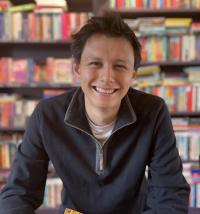
Project Summary:
My project responded to two problems facing graduate student TAs and Instructors on Record: 1) There was missing knowledge in the graduate student community about navigating academic accommodations through both the Academic Senate and the Student Disability Center (SDC). 2) There was a lag in the current graduate student community’s timeframe for learning about academic accommodations. My project responded to these gaps by first working with concerned graduate students, RSOs, and divisions on campus to create a slide deck, flowcharts, and roadshow presentation, and second through developing an online training module for graduate student TAs and instructors through the UC Learning Center.
The timeline began with focus group discussions with impacted departments like English and Comparative Literature and RSOs/student groups including the Aggie Neurodiversity Community, Disabled Student Union, and ASUCD that found there was substantial concerns in departments across colleges concerning both accessing academic accommodations and understanding best practices for UC Davis. It was discovered that while academic accommodations are covered in the TA orientation at the very start of TA-ing, this information was not retained. Because academic accommodations are covered in TA orientation there is a perception that graduate students already know about the academic accommodations process and there is minimal need to reiterate this knowledge. There was also a recent change where TAs used to be responsible for testing accommodations but that has shifted to the instructors on record. There were further challenges discovered including the SDC practice of manually uploading graduate student emails when they shifted to associate instructor status and manual changing of the status of graduate students from TA to AI during my email exchanges with the SDC. During these preliminary focus groups and my initial focus group session, I discovered there was considerable interest in both a concise presentation on academic accommodations that could be delivered to departments and an online training module.
When authoring the presentation and online training module I focused on the distinction between academic accommodations provided by the Academic Senate including excuses from a mandatory class session, extensions on assignments, and receiving an incomplete and academic accommodations through the SDC that include testing accommodations and classroom accommodations. I provided a detailed walkthrough for navigating the SDC including flowcharts and screenshots for how to access the SDC portal, acknowledging accommodations, troubleshooting missing letters, best practices for navigating the interim period, and partial scheduling using the examination scheduling module. I highlighted the range of aids and services available to instructors including assistive devices, audio recordings, and computer aided real-time transcription. I will distribute the slides to all departments and upload to the CEE website and GSA website. I am open to road show style presentations on the department level. In June I am collaborating with the CEE to run additional focus groups for the online module that will be part of the UC Learning Center.
Joshua Garcia, Land, Air, and Water Resources, Postdoctoral Scholar
Composing a Compelling Academic Portfolio
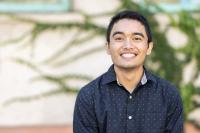
Project Summary:
Academic portfolios consisting of research statements, teaching statements, and diversity statements are required as part of the application for all faculty positions and, increasingly, as part of the application for government and industry positions as well. However, the form and content of these statements is often not taught to graduate students and postdocs, leaving them to figure out how to effectively craft these documents on their own. To help address this issue, I organized a workshop series titled the “Academic Portfolio Institute,” which offered formal instruction on how to craft effective research, teaching, and diversity statements for the academic job market. The workshop series was hosted by Dr. Joshua Garcia (Diversity Statement), Dr. David Segal (Research Statement), and Dr. Patricia Turner (Teaching Statement). Following three sessions covering each statement, a peer review session was offered to allow participants to apply what they learned and give and receive feedback on their portfolios.
The workshop series averaged 20 participants for each session, most of whom were first year postdocs who were currently on the job market. Post-workshop surveys indicated that participants enjoyed the formal breakdown of each statement, printed resources to guide them as they drafted their statements, and receiving advice for crafting their statements. Suggestions for improving the workshop series included having longer sessions to allow more time for writing and discussion, having more examples of successful portfolios, and more nuanced discussions of the differences between disciplines and institutions. Future directions for this series could include conjoined efforts with Strength through Equity & Diversity (STEAD) Faculty Search Committee Workshop Series, the GradPathways Institute for Professional Development, and the Center for Educational Effective (CEE).
Chelsea Kelland, Immunology, PhD Candidate
Move: Empower Your Graduate Life At UC Davis
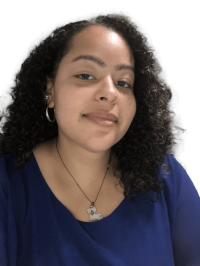
Project Summary:
"Move: Empower Your Graduate Life at UC Davis" was a pioneering initiative aimed at enhancing the well-being of graduate students at UC Davis proudly sponsored by the GradPathways Institute for Professional Development, Graduate Studies, and the Professors For The Future fellowship. Completed on April 25, 2024, this event recognized the prevalent mental health challenges faced by graduate students and aimed to address them through the promotion of physical activity.
Research indicated that graduate students often grappled with symptoms of depression and dissatisfaction. While mental wellness resources exist, the significance of physical health has been frequently overlooked given regular exercise is closely linked to reduced stress, improved mood, and lower rates of depression. In response to this critical need, our event offered an empowering workshop and fitness class tailored specifically for graduate students. The workshop provided essential insights into workout fundamentals and strategies for overcoming gym anxiety. Participants learned how to craft personalized gym routines that accommodated their hectic schedules. Following the workshop, attendees engaged in a beginner-friendly full-body workout session led by the experienced personal trainer, Lia Reznik. This session was designed to cater to all fitness levels, fostering a supportive environment for graduate students interested in integrating fitness into their lives or connecting with peers in the fitness community.
"Move" was an opportunity for graduate students to take charge of their physical and mental well-being. By participating, attendees left feeling empowered and equipped with the tools to prioritize their health and happiness effectively. Further all attendees signed a interest form for the creation of a graduate student fitness club on campus. The next steps of this project include establishing a recognized graduate student fitness organization on campus as this will open doors to a plethora of workshops and events dedicated to enhancing the physical well-being of our graduate community. This next step not only fosters a culture of health and wellness but also serves as a catalyst for building a tight-knit community of support. Being recognized at orientation will elevate our visibility, drawing attention to the diverse avenues of assistance available to graduate students at UC Davis. Moreover, through this club, we aim to promote holistic experiences by emphasizing the importance of physical health alongside academic pursuits. Lastly, it serves as a beacon of accountability, encouraging members to prioritize self-care while fostering connections that transcend the boundaries of graduate group, department, or spatial location. Taken together, “MOVE” seeks to embark on a journey towards a healthier, more connected graduate community, where every member feels empowered and supported in their pursuit of excellence in every form.
Paige Kouba, Ecology, PhD Candidate
From Milestone to Stepping Stone: Peer Support for the QE
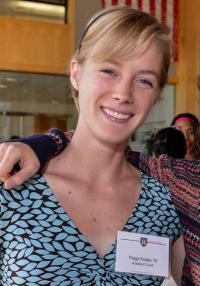
Project Summary:
The Qualifying Exam is arguably the most important challenge a student must meet on the path to completing a PhD. Some PhD programs at UC Davis have a first-time QE pass rate as low as 67%, causing anxiety among test takers and slowing degree progress. Informal transfer of knowledge between students can help students prepare for the exam, but the upheavals of COVID-19 led to a disruption in grad student socializing and community building. To meet the urgent need for support among the current cohort of test-takers, and to lay a foundation for even stronger peer mentorship in future years, I began recruiting participants for the QE Support Community in February 2024.
As universities continue and expand their efforts at outreach and recruitment, we must also redouble our efforts to help students navigate the “hidden curriculum” of graduate school. By pairing pre-QE students with post-candidacy mentors, and connecting them within a network of supportive peers, the program aims to foster collaboration and support equity for students facing one of the toughest challenges of a doctoral program.
The goal of the QE Support Program was to provide feedback and guidance to students as they prepared for the exam. The prevailing philosophy was that by connecting with peers, we could turn an unpleasant and stressful experience into a positive one—turning the QE milestone into a stepping stone to help us reach our goals. The 2024 QE Support Group included 134 members: 87 pre-QE mentees, and 47 post-candidacy mentors. Ninety members attended one of the two introductory workshops, and an average of 12 participants showed up to weekly practice exams throughout Spring Quarter. Throughout its first term, the QE Support Group featured 15 students’ practice QEs (after adding a second meeting time due to high demand). Twenty-four group members had taken their QE by the end of Spring Quarter, with another 38 exams scheduled for summer, fall, and beyond. Group members had access to a network of peers and near-peer mentors, whom they could contact via email or through the group’s online Q&A forum. Students were offered the chance to receive 1 unit of course credit for their participation in weekly practice talks.
Brooke Wickman, Nutritional Biology, PhD Candidate
Selecting Service Systematically
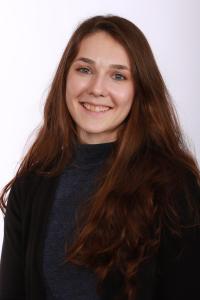
Project Summary:
Service, considered one of the three pillars of academia, is an important aspect of an academic career. Merit and promotion review of tenure-track faculty prioritizes research and teaching, with service evaluation also considered. Prior to tenure review, academic trainees may be evaluated based on their service record for fellowships, awards, and jobs. Graduate students and postdoctoral scholars are usually not explicitly taught about service opportunities, best practices for participating in service while focusing on research and teaching, or how to strategically engage in service aligned with their commitments to professional development, institutional success, communities, or their personal values.
Graduate students and postdoctoral scholars need guidance to determine characteristics of worthwhile service opportunities, evaluate potential outcomes of service involvement, avoid excessive service participation, and inform their motivations for volunteering. The Selecting Service Systematically program addresses gaps in understanding and navigating service participation while empowering participants to develop a service philosophy to guide their institutional, professional, and community service engagement. In the Selecting Service Systematically program, graduate students were able to ask questions about service, utilize reference resources including a resource guide, podcast, and service database, discuss service experiences with intra- and interdepartmental peers, and attend a workshop on developing their service philosophy. Future efforts to support service-related training for graduate students and postdoctoral scholars should incorporate needs assessment and implementation strategies to ensure awareness, interest, and access to training resources related to service engagement.
Rebecca Wilson, Neuroscience, PhD Candidate
Seminar on Seminars
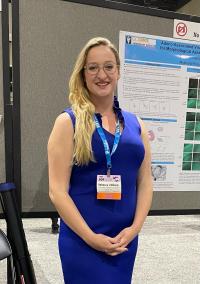
Faculty Mentor: Dr. Ian Campbell
Project Summary:
Science communication is one of the most critical skills for graduate students to learn for their professional development. These skills are crucial for scientists to effectively share recent findings, increase public awareness of science, increase trust in the scientific community, build relationships with collaborators, and potentially inform public policy. One formalized method of science communication is presenting research seminars, which are expected not only as a graduation requirement for many STEM students but are also expected to be prepared during interviews for any future career opportunities. Despite this set of skills being a pillar of a well-rounded scientist, there are not many opportunities for STEM graduate students to develop these skills before they present their first research seminar, which in many cases is only done at the completion of the student’s graduate education as a requirement for graduation.
To fill this gap in the curriculum, I organized a 4-part seminar series called “The Seminar on Seminars” to educate students on different aspects of research seminars. These seminars include:
- “Excuse Me… What is an Exit Seminar?” - Detailed the expectations for exit seminars, general best practice for assembling this talk, and outlined the other requirements for graduation for doctoral students.
- “Presenting Your Research Story” – Provided guidance on the best organization for research seminars including how to present scientific data as a cohesive story and tips and tricks for keeping an audience’s attention.
- “Clearly Presenting Scientific Data” – Aimed to elaborate on the clearest way to present different forms of scientific data and using your data to outline the impact of your research.
- “HOW TO: Academic Faculty Interviews” – Elaborated on the types of seminars expected of applicants during academic faculty interviews and detailing what the faculty interview process generally looks like.
In the “Seminar on Seminars” series, graduate students from multiple graduate groups around campus were given the opportunity for an expanded education on communicating their research, develop a research seminar based on their own work, and learned how that directly applies to future academic interviews. Moreover, this project aimed at increasing graduate student confidence in their abilities to present their research and be successful in the academic job market. Future applications of this project should include more hands-on efforts to aid students in organizing their own research seminar and potentially providing students with an opportunity to present their research beyond their graduate group in a small graduate student conference.
Team Projects
MINT-Mentorship Internet Toolkit
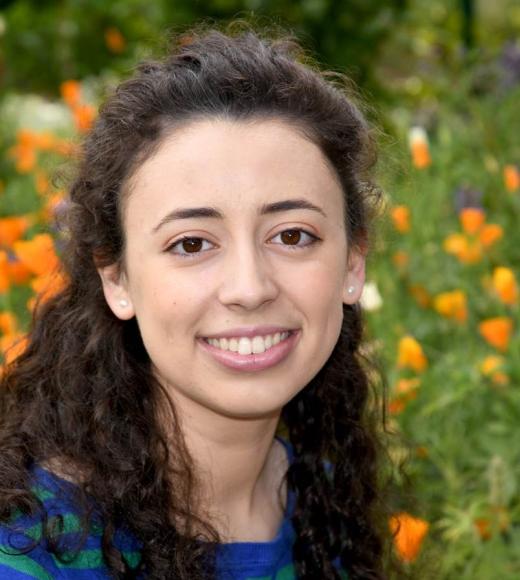
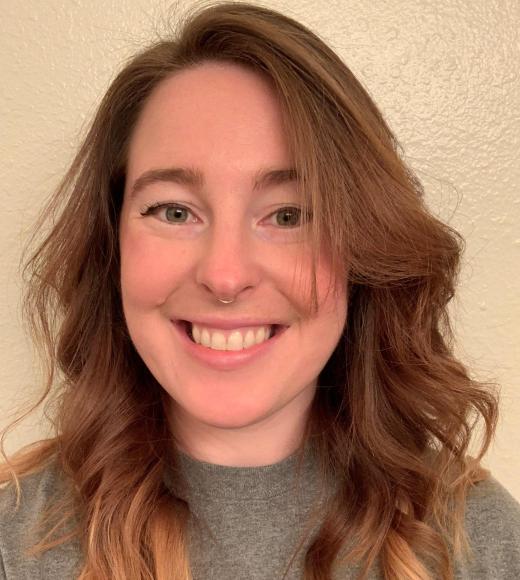
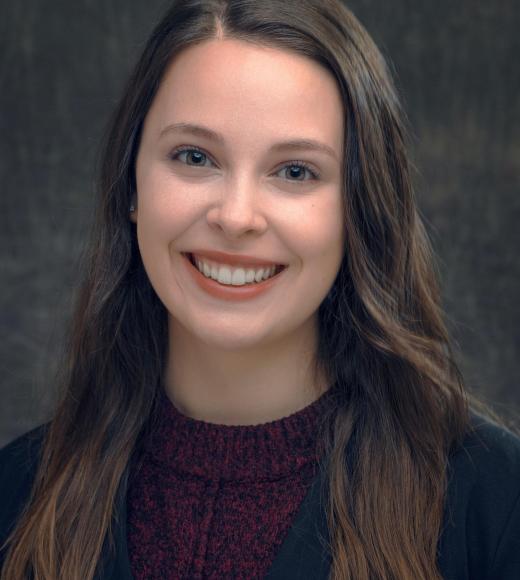
Saskia Mesquida Pesci, Plant Pathology, PhD Candidate
Sophie Orr, Biomedical Engineering, PhD Candidate
Emily Searl, Sociology, PhD Candidate
Project Summary: MINT is a collection of resources to help graduate students mentor undergraduate students. It is perfect for: TAs, researchers, and any position on campus that relies on one-on-one interactions between a mentor and mentee. MINT seeks to help address the lack of mentorship materials available to graduate students mentoring undergraduate students. Mentorship is a key component of graduate education and becoming competent mentors is important for the future job prospects of graduate students.
Through a brief survey (n=61 respondents) and focus group discussions we have clarified the top five areas of support with mentorship that graduate students are interested in. These areas include: (1) Mentoring 101, (2) Developing Your Mentorship Style (3) Aligning Mentor/Mentee Expectations, (4) Identifying & Helping Struggling Students (5) Mentorship as Professional Development.
MINT provides support for graduate students, postdoc mentors, and undergraduate students in addition to providing equitable access to mentorship materials. By using MINT, mentors are better equipped to support mentees. These resources encourage mentors to put student wellbeing at the forefront and help students leverage mentorship as a professional development opportunity. MINT could also help with increasing retention of undergraduates through improved mentorship experiences with graduate students and postdocs. MINT will be made available for free to graduate students and postdocs in both pdf and google drive formats. We are currently working to make MINT available through multiple university websites.
Aggie Resilience: Lifting As We Climb
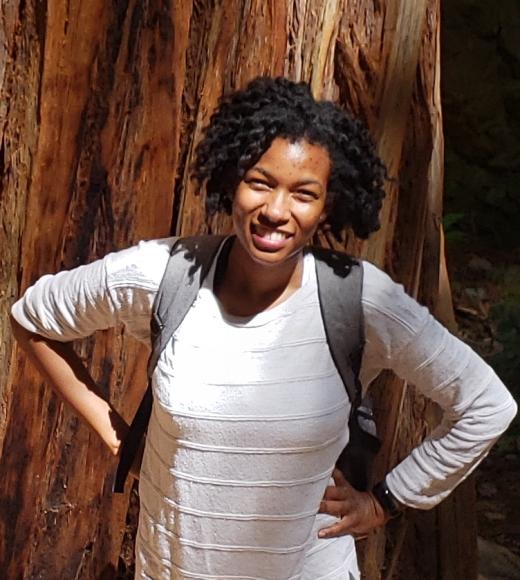
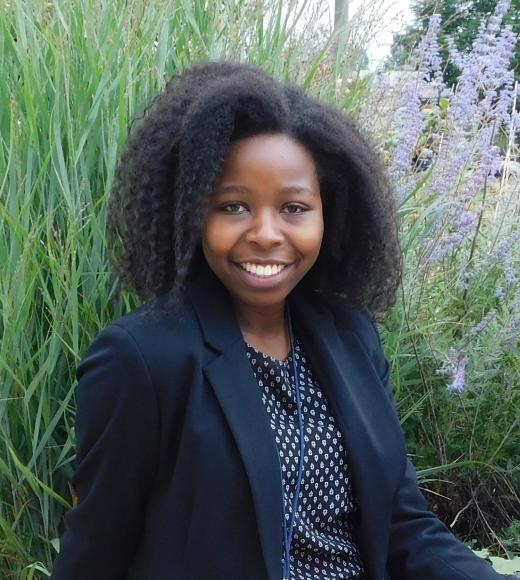
Tamara Christiani, Integrative Genetics and Genomics, PhD Candidate
Doreen Joseph, Computer Science, PhD Candidate
Faculty Mentors: Dr. Ebony Lewis, Dr. Danielle Harvey, & Dr. Maeli Melotto
Project Summary: Each and every one of us has a story to share - and those stories may be the words someone else needs to hear to feel inspired about their journey in grad school and beyond. The Aggie Resilience project's purpose is to cultivate an increased sense of belonging and community at UC Davis for students from marginalized groups, ultimately contributing to improved retention and success of our target audience. Our main goal is to encourage graduate, professional, and postdoctoral scholars at UC Davis to share their stories of resilience to inspire and encourage others. The project kicked off with the Aggie Resilience Celebration in the 2024 Winter Quarter. This community building gathering featured a fireside chat with the Vice Chancellor of DEI, a panel discussion with scholars at different stages, a LinkedIn workshop, and a storytelling session to help participants learn how to craft and tell their stories. Inspired by stories featured in Humans of New York, the follow-up social media campaign, Humans of Walker Hall, features stories of resilience on social media to foster connection among Aggie graduate and postdoctoral scholars of color, and help curb feelings of isolation. Outcomes from the project indicate the value of this initiative, and a shared desire from participants for this community building project's continuation.
Demystifying Graduate School and Undergraduate Research
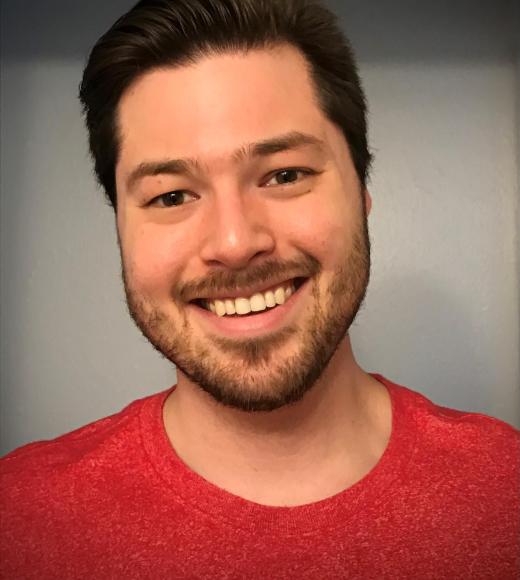
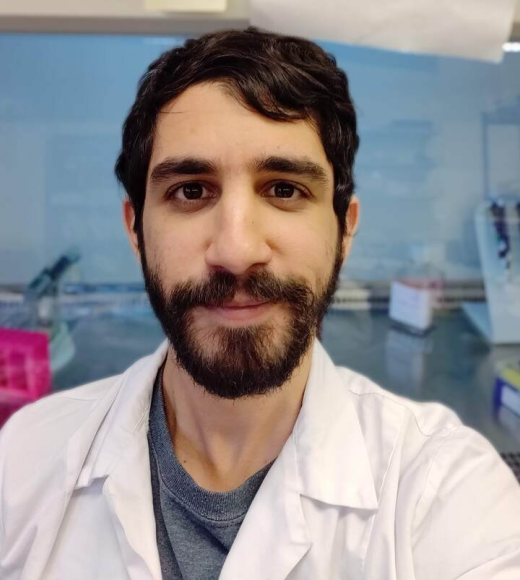
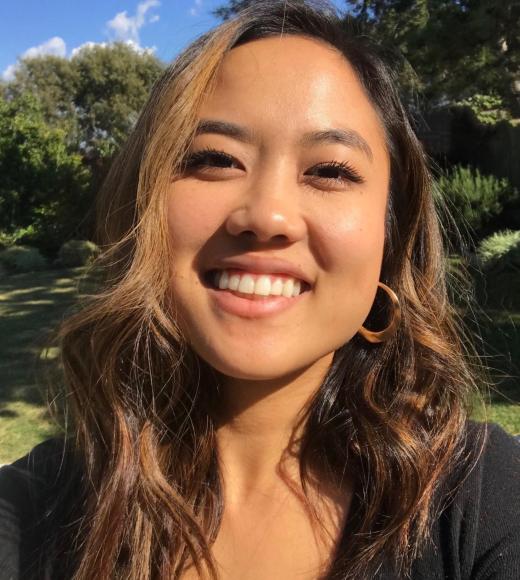
Andrew Curtright, Land, Air, and Water Resources, Postdoctoral Scholar
Arabo Avanes, Biochemistry, Molecular, Cellular, Development Biology, PhD Candidate
Alyson Kim, Civil and Environmental Engineering, PhD Candidate
Project Summary:
Our project goal was to increase the recruitment of students from historically marginalized backgrounds into research and graduate studies. To achieve this, we organized two key events titled "Demystifying Graduate School and Undergraduate Research" at UC Davis and California State University (CSU) Sacramento. These events were designed to provide undergraduates with a clearer understanding of what graduate studies and undergraduate research entail. Each event began with an overview presentation about graduate school and research, led by PFTF fellows. Following the presentation, students were broken up into smaller groups (5-10 students) for informal discussion with current graduate students and PFTF fellows. These discussions were facilitated by Arabo, Andrew, and Alyson, along with five other graduate student volunteers who shared their personal experiences and insights, answering any questions the undergraduates had about graduate school and research life. After the event, we provided a resource kit that included a copy of the presentation, documents, and links with more information about graduate school.
The first event at UC Davis had 60 enthusiastic students in attendance. The students noted that they found the session informative and expressed a desire for more similar events (casual conversations between graduate and undergraduate students about graduate school). Most students were engaged and stayed the entirety of the event. Some graduate student volunteers mentioned that an event like this one was not something they knew of to be hosted at their undergraduate universities, but that they would have benefited from it. The second session at CSU Sacramento had approximately 40 students in attendance, all of which are planning to pursue graduate studies. Again, the students were enthusiastic and came with many questions. Although the event was successful, student feedback suggested that hosting future events during the fall quarter might be more useful as some students had already applied to programs by that point. To gauge the impact of these events, we administered exit ticket surveys asking students about their level of interest in undergraduate research and graduate studies before and after the events, along with their evaluation of event content's usefulness. These surveys helped in assessing the effectiveness of the sessions and in identifying areas for improvement for future events. Overall, this project provided an opportunity for current graduate students to engage with and mentor the next generation of scholars, fostering a community of learning and mutual growth.
Teach to Reach! Inclusive Pedagogy Workshop Connecting Sac State and UC Davis
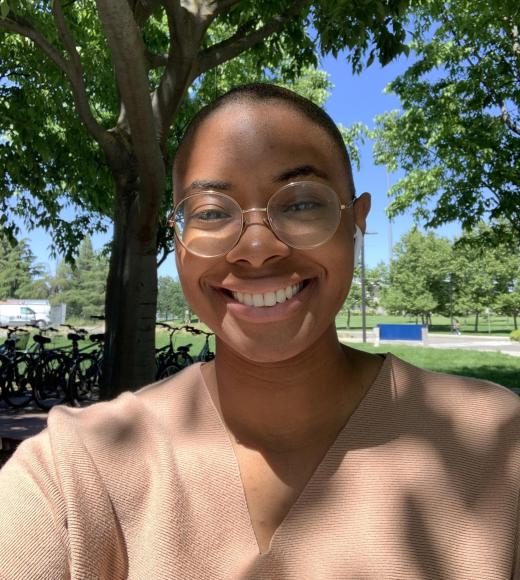
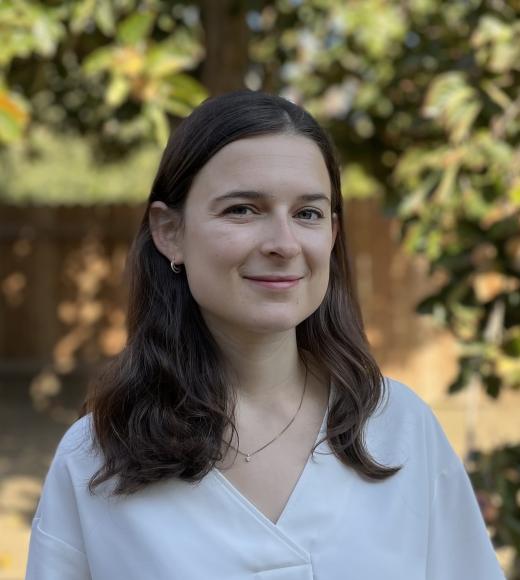
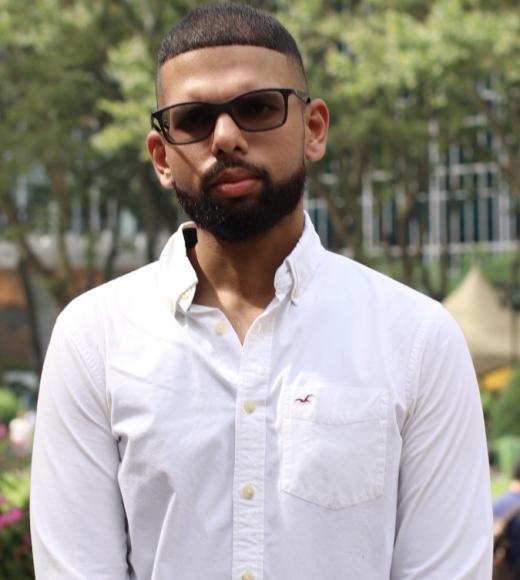
Amelia Brie Bennett, Microbiology, PhD Candidate
Sophia Minnillo, Atmospheric Science, PhD Candidate
Raymond Sukhdeo, Linguistics, PhD Candidate
Faculty Mentors: Becky Kluchin, Matthew Krauel, DavidSegal
Project Summary:
In order to improve recruitment and retention of diverse students in higher education, we must strive to teach in a more inclusive manner. Oftentimes, students from marginalized communities, such as those with learning disabilities, from diverse ethnic backgrounds, and first-generation college students, are left out in the classroom. Responding to these inequities, this
project brought together current and prospective educators from California State University- Sacramento and University of California- Davis to learn from each other about inclusive teaching. Our project consisted of three parts: (1) dialoguing with peer tutors and faculty at Sac State to hear about their inclusive teaching practices, (2) leading a workshop at UC Davis to train instructors on inclusive teaching, and (3) compiling a resource to learn more about inclusive teaching. First, the faculty fellows from Sac State oriented us to the resources that exist on their campuses to foster inclusive teaching. They also connected us with Sac State undergraduate peer tutors, who taught us about how they enact inclusive teaching in their tutoring sessions. We hosted our workshop on April 10th, 2024, in Walker Hall, which consisted of a panel discussion, small lectures, and interactive activities to introduce attendees to some of the inclusive teaching practices we had researched. Together we compiled a resource handout that discussed the importance of language and presentation format in the classroom, and we compiled a list of classes that students can take to learn inclusive teaching strategies. This project represents a step in the right direction, and we hope that PFTF will continue supporting inclusive teaching through future projects.
